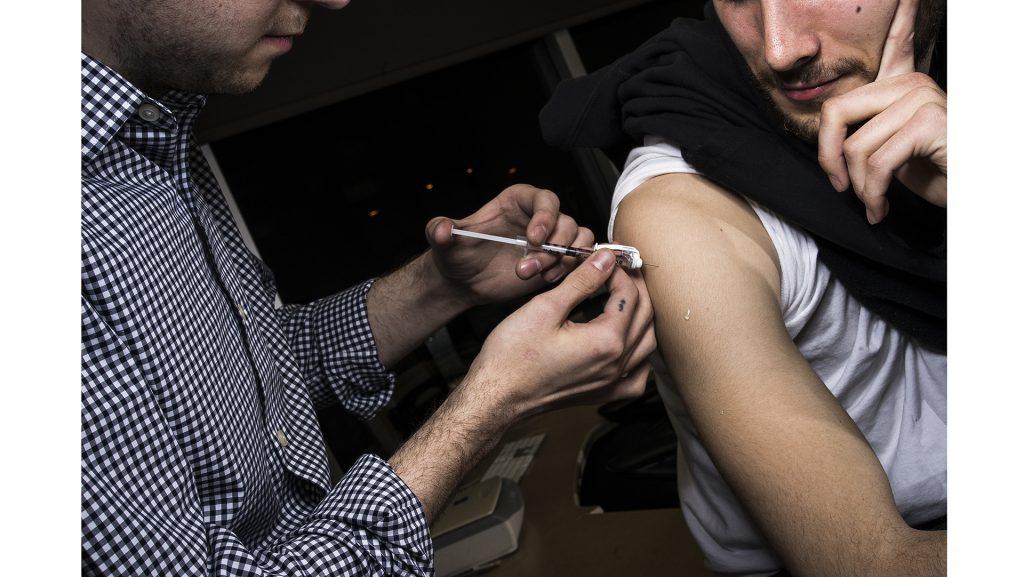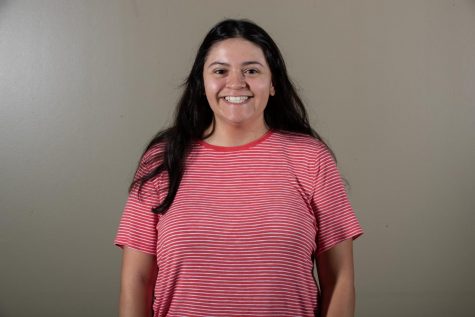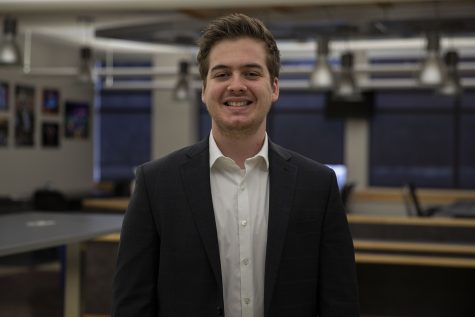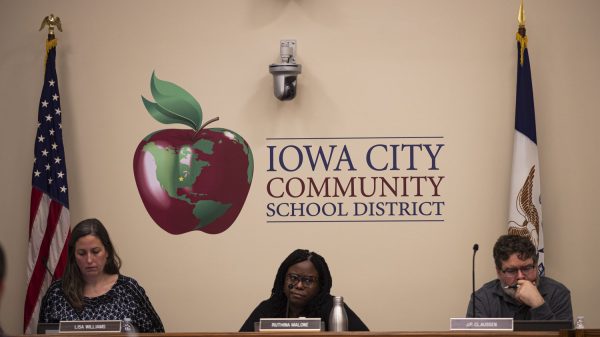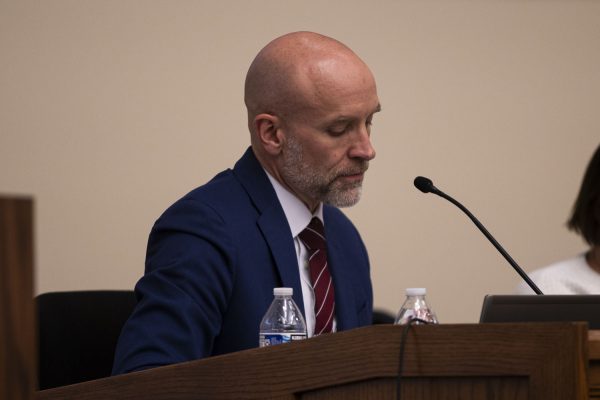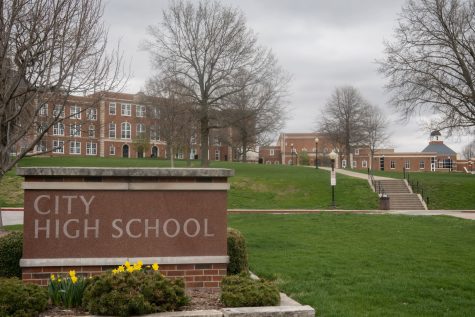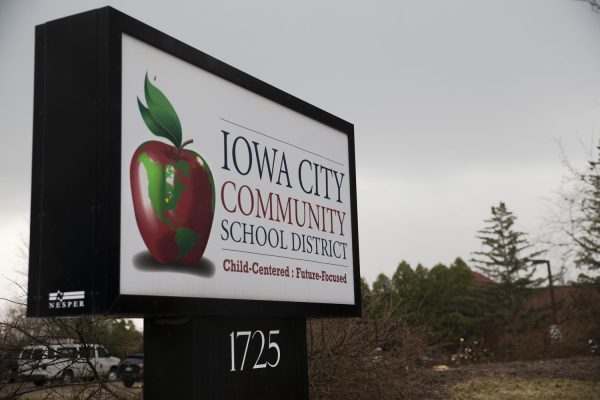Vaccine exemptions on the rise in Iowa
As vaccine exemptions across Iowa and the U.S. rise, state legislators have proposed vaccine legislation and public health officials have decried the spread of misinformation.
Photo Illustration by James Year
April 12, 2019
As the number of measles cases continue to rise in the United States, more Iowa families are exempting their kids from vaccinations, including in Iowa City.
The U.S. is facing its second-largest outbreak of measles since the virus was virtually eliminated in the country nearly 20 years ago. Some 465 cases in 2019 had been identified as of April 4, according to the U.S. Centers for Disease Control & Prevention. Currently, unvaccinated travelers from outside the U.S. are the source of U.S. measles cases.
While there have been no cases of measles in Iowa since 2011, according to the Iowa Department of Public Health, Midwestern states Illinois, Indiana, Michigan, and Missouri have reported cases this year, according to the CDC.
To protect children from such illnesses as measles, Iowa City School District health coordinator Susie Poulton said the district requires that students meet the state’s vaccination requirements.
Although the myth that vaccines cause autism has been debunked by numerous studies, there has been an increase in vaccination exemptions for religious reasons in the last decade in the state’s schools, including in Iowa City School District.
Iowa school districts accept both medical and religious exemptions as outlined by state law.
Of the 13,993 students enrolled in Iowa City schools in the 2017-18 academic year, Poulton said there were 24 medical and 130 religious exemptions, 1.1 percent of the School District.
Poulton said the number of religious exemptions in the school district has risen in recent years, and she expressed concern that parents may be misusing the provision as a loophole for nonreligious reasons.
RELATED: UI reacts to mumps threat
“It just requires that it be notarized, but it doesn’t require any religious authority overseeing that,” she said. “So I think religious [exemptions] end up being personal.”
According to data from the Iowa Department of Public Health, Horn Elementary in Iowa City had the lowest vaccination rate in the School District at 82.06 percent of students vaccinated during the 2017-18 school year.
An increase in unvaccinated students could be harmful to the health of the student populations at Iowa City schools, Poulton said. Students who cannot be vaccinated for medical reasons rely on herd immunity, and higher numbers of unvaccinated children can lead to outbreaks of preventable diseases such as measles or chickenpox.
Poulton said some parents refuse vaccines because they don’t want to see their child in pain.
“It’s important that they understand it’s just one needle poke compared to what could be very, very detrimental to your child’s health and to the health of others if they spread the disease,” she said.
Two bills introduced to the Legislature this session address vaccines, one seeking to loosen vaccination requirements and one that aims to ban exemptions to vaccines altogether. Neither gained support to pass this session, but lawmakers may try to address the issue in the future.
In February, Sen. Dennis Guth, R-Klemme, introduced legislation with Sen. Brad Zaun, R-Urbandale, that would have added a provision to vaccine-exemption law that allowed for exemptions to be given for “conscientiously held beliefs” that conflict with immunizations.
RELATED: University of Iowa study dives into new biotech that could replace needle-administered drugs
The bill also sought to change the wording regarding medical exemptions from “would be injurious to the health and well-being of the applicant or any member of the applicant’s family” to “could.”
Guth said he is skeptical about the safety of vaccines, and he aims to keep addressing the topic, with plans to focus on encouraging more injury reporting.
“The goal is not to have no one get vaccinated, but to make those vaccines safer,” Guth said in an email to The Daily Iowan.
He noted that he began looking into the topic of vaccine injuries around nine years ago after meeting with a family member who had a child who he said had a vaccine injury.
However, UI infectious-diseases Professor Jack Stapleton said that extensive studies have shown that vaccines do not cause autism and are safe with rare exceptions.
“That is based on a paper that was retracted, and all but one of the 15 authors said it was not true,” Stapleton said. “There have been lots of studies looking at it since then that don’t show any evidence of a connection between the MMR vaccine and autism.”
The bill was assigned to a three-person subcommittee of the Senate Human Resources Committee but was never voted to be discussed by the full committee.
Rep. Mary Mascher, D-Iowa City, said she has brought up making vaccine exemptions stricter in the Legislature. She most recently submitted a bill, which failed to pass a key legislative deadline, that would have eliminated the religious exemption.
“I believe strongly in science and the need for vaccinations, which is why I’m concerned about some of our counties where the vaccination levels are declining due to a lot of different reasons,” Mascher said.



